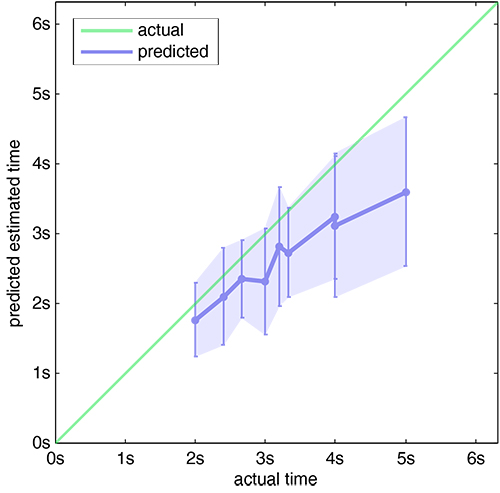Time Perception in VR
Misperception of time has not been extensively researched in virtual reality so far. Experimental studies of time perception in the field of psychology have well established that estimates of stimulus duration do not always match its veridical time interval, and are affected by a variety of factors. Since time cannot be directly measured at a given moment, the brain is often assumed to estimate time based on internal biological or psychological events, or external signals. The effect of exogenous cues (i. e. zeitgebers) from the local environment on endogenous biological clocks (e. g. circadian rhythms) is studied in the field of chronobiology. It is possible that differences in exogenous time cues between the real world and IVEs have an effect on internal human time perception. In particular, system latency is known to change the perception of sensory synchronicity and can degrade the perceptual stability of the environment. Space and time are interdependent phenomena not only in physics, but also in human perception.

Contact
Dr. Gerd Bruder, Prof. Dr. Frank Steinicke
